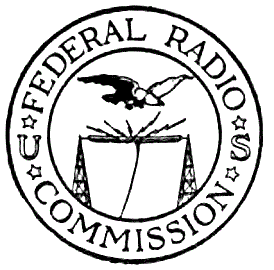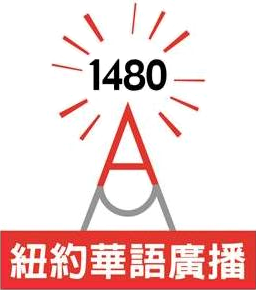
The Federal Radio Commission (FRC) was a government agency that regulated United States radio communication from its creation in 1927 until 1934, when it was succeeded by the Federal Communications Commission (FCC). The FRC was established by the Radio Act of 1927, which replaced the Radio Act of 1912 after the earlier law was found to lack sufficient oversight provisions, especially for regulating broadcasting stations. In addition to increased regulatory powers, the FRC introduced the standard that, in order to receive a license, a radio station had to be shown to be "in the public interest, convenience, or necessity".
WCPT is a commercial progressive talk radio station licensed to Willow Springs, Illinois. Owned by Heartland Signal LLC, the station serves the Chicago metropolitan area. The station's studios and daytime transmitter are located in the Jefferson Park neighborhood on Chicago's Northwest Side, while its nighttime transmitter is located in Joliet.

WHIZ is a commercial radio station licensed to Zanesville, Ohio, featuring a full service format known as "AM 1240 The Voice". Owned by Marquee Broadcasting, this station is the local affiliate for ABC News Radio, the Cincinnati Bengals, Cincinnati Reds, Columbus Blue Jackets and Ohio State Buckeyes radio networks, in addition to carrying ESPN Radio and Westwood One programming. WHIZ's studios are located in a combined facility with WHIZ-TV, WHIZ-FM and WZVL on Downard Road in Zanesville, while the transmitter is located to the northeast of the city's downtown. In addition to a standard analog transmission, WHIZ is relayed over low-power Zanesville translator W272EE and is available online.
WKBF was a radio station licensed to Rock Island, Illinois, which last carried a regional Mexican format. The station's frequency was 1270 kHz, and was broadcast at a power of 5 kW. It last broadcast in Autumn 2018, and its license was cancelled on June 1, 2020. Its transmitter was located on 22nd Avenue in Moline, alongside the Moline–East Moline border just off 53rd Street and Avenue of the Cities.
WWRV is a Spanish-language Christian music and teaching station, licensed to New York, New York. It is owned by Radio Visión Cristiana Management. Studios are at 419 Broadway in Paterson, New Jersey. In 2016, WWRV moved its transmitter facilities to a diplex with WZRC in Ridgefield Park, New Jersey.

WZRC, known on-air as "AM1480", is a radio station licensed to New York, New York. The station is owned by Multicultural Broadcasting and airs Cantonese programming. It is one of two Cantonese radio stations serving the New York metropolitan area, the other is Chung Wah Chinese Broadcasting Company. WZRC's transmitting facility is located in Ridgefield Park, New Jersey.
WCRW was an AM radio station in Chicago, Illinois, which operated on a "shared time" frequency until 1996 with two other stations, WEDC and WSBC, each broadcasting a part of the day.

WLLH is a commercial radio station in Lawrence, Massachusetts, serving the Merrimack Valley region. The station is owned by Gois Broadcasting, LLC, and airs a tropical music radio format. The transmitter site is on Common Street, near the Lawrence Police Department Headquarters.
WEVD was the call sign held by three New York City commercial radio stations, with related ownership, from 1927 until 2003. This call sign was formed from the initials of recently deceased Socialist Party of America leader Eugene Victor Debs.
KBUP is a radio station licensed to Olympia, Washington. Owned and operated by Sacred Heart Radio, Inc., it relays the Catholic religious programming originating at KBLE 1050 AM Seattle.
KRNT is a radio station broadcasting a sports format. Serving the Des Moines, Iowa, United States, area, the station is owned by Saga Communications through licensee Saga Communications of Iowa, LLC; it operates as part of Saga's Des Moines Radio Group.
Newsweb Corporation is a printer of ethnic and alternative newspapers in the United States, based in Chicago, Illinois. The company also owns AM 750 WNDZ. Newsweb was founded in 1971 by Chicago entrepreneur, political activist, and philanthropist Fred Eychaner to continue his printing business.
WSBC is a commercial AM radio station in Chicago, Illinois. It broadcasts brokered programming, mostly ethnic and religious. It is owned by Hearland Signal LLC.

WGBB is a radio station licensed to Freeport, New York and serving Nassau County, New York. Founded in 1924, it is Long Island's oldest radio station.

WGRB is a commercial AM radio station in Chicago. It is owned by iHeartMedia and it airs an urban gospel format. On Sundays, the station broadcasts the services of several African-American churches in the area. The studios are at the Illinois Center complex on Michigan Avenue in Downtown Chicago.
WFAS was a commercial digital-only radio station licensed to serve White Plains, New York. The station was owned by Cumulus Media and broadcast with 1,000 watts from its transmitter site on Secor Road, in Hartsdale, New York. WFAS aired a conservative talk radio format with programming from Westwood One, which is itself owned by Cumulus Media. News updates were supplied by USA Radio News.

WTAX is a commercial AM radio station in Springfield, Illinois. It is owned by Saga Communications, and operates as part of its Capitol Radio Group. WTAX simulcasts a news/talk radio format with 93.9 WTAX-FM. The radio studios and offices are on East Sangamon Avenue in Springfield.
WCFJ was a radio station licensed to Chicago Heights, Illinois, United States. Its transmitter was located south of Crete, Illinois and served Chicago's south suburbs and South Side, as well as Northwest Indiana. The station's original call sign was WMPP.

WHBY is a commercial radio station licensed to Kimberly, Wisconsin, that serves the Green Bay and Appleton-Oshkosh areas. The station is owned by Woodward Communications and it airs a news/talk radio format. WHBY's studios and microwave transmitter are located on East College Avenue in Appleton.

WSOY is a commercial AM radio station broadcasting a Talk radio format. Licensed to Decatur, Illinois, the station is owned by Neuhoff Corp., through licensee Neuhoff Media Decatur, LLC. Neuhoff owns four other local radio stations, WCZQ, WDZ, WDZQ and WSOY-FM. Studios and offices are located on North Water Street and the transmitter site is near St. Louis Bridge Road, sharing the same tower as WDZ.








